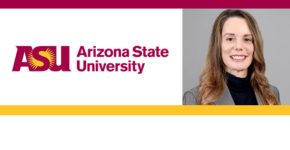 Ancient philosophies can still ring true today.
Ancient philosophies can still ring true today.
Sandra Woien, associate teaching professor in the school of historical, philosophical, and religious studies at Arizona State University, determines why.
Sandra Woien is an Associate Teaching Professor in the School of Historical, Philosophical, and Religious Studies at Arizona State University. She currently teaches a variety of courses dealing with ancient philosophy, human flourishing, and ethics. Prior to joining ASU, she was an assistant professor in Health Care Ethics at Regis University in Denver, Colorado, and she worked with a variety of health professional students including teaching graduate-level classes on leadership.
Sandra is especially interested in making complex philosophical concepts accessible to a wide audience. She is the editor of Jordan Peterson: Critical Responses, where she assembled a group of scholars to critically assess the ideas of Jordan Peterson. This volume aimed to make a scholarly critique of his ideas accessible to a lay audience. In this volume, she contributed a chapter in which she compared and contrasted Peterson’s theory of the good with the Stoic conception. In her follow-up volume, Sam Harris: Critical Responses, she also aimed to make scholarly thinking about Harris’s ideas accessible to a wide audience. In this volume, her chapter offered an in-depth critique of his view of well-being. Her writing, which bridges the gap between academic and popular culture, has been commended for its ability to engage both scholars and general readers.
Her research coalesces around the theme of the good life. Her research interests primarily comprise theoretical concepts of well-being and their practical application to pivotal life decisions. More recently, she has explored how ancient philosophy can also be action-guiding and aims to distill ancient insights into practical tools that can be used to enhance human flourishing. Her work has appeared in The Conversation, American Journal of Bioethics, BMC Medical Ethics, and elsewhere.
Stoicism and Spirituality
Have you ever thought about how ancient philosophy can help you, a modern living in the 21st century, to live a more meaningful and fulfilled life? If you are like most others, the answer is probably a resounding ‘no.’ My current research project, however, hopes to change that.
Ancient philosophy encompasses a rich philosophical tradition where philosophy isn’t solely an academic discipline or some heady, heavy musings of old dead white guys. Instead, for ancients, philosophy was a way a life. It was a complete system that everyone could benefit from to positively transform their lives. While there were competing schools of thought, different recipes if you will, these philosophical systems provided guidance about how to live, how to act, and even how to think, and they included a variety of so-called spiritual exercises, from writing to meditation, that aimed to hasten and solidify our transformation and put us on the path to the good life.
Stoicism, one specific ancient school of thought, has experienced a renaissance because people are starting to search for meaning and guidance outside of modern institutions. Feeling unmoored, many perceive a dearth of wisdom in institutions from academia to religion, and some have started to look to ancients for advice.
My current research project aims to remind readers that the Stoics, and others such as Platonists, the Epicureans, and the Cynics also have a lot of transformative advice to offer, and since a one-size-fits-all approach may not work, moderns should be introduced to a variety of ancient schools of thought.
Thus, my current research aims to bridge the divide between theory and practice and between antiquity and modernity, by showing the latter that the ideas of the ancients are not only accessible but also still relevant. They address perennial human truths; they have something relevant to say to modern readers – something that they can use to form happy families, build successful careers, and live happy and meaningful lives.

